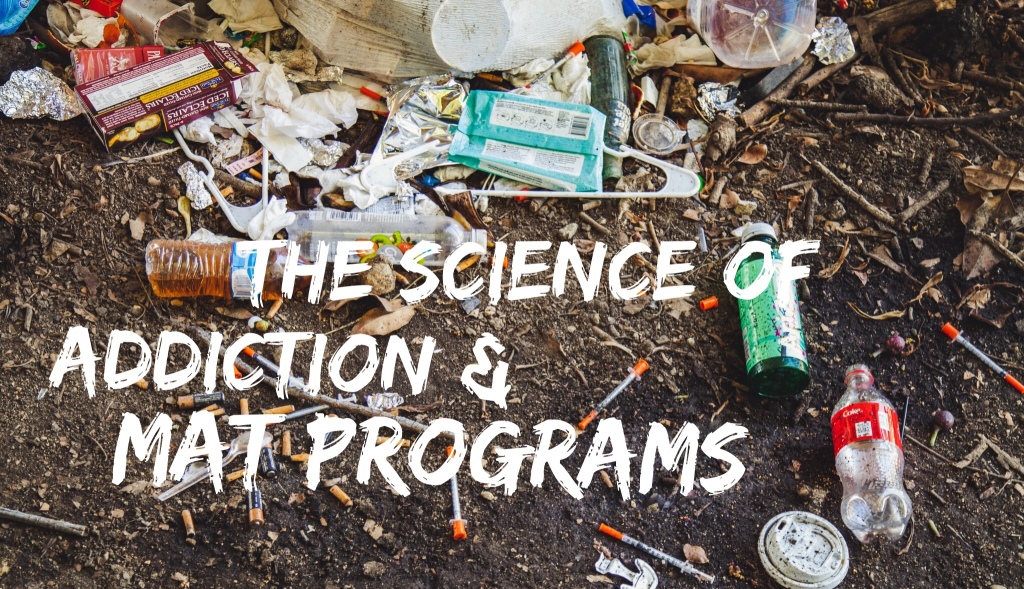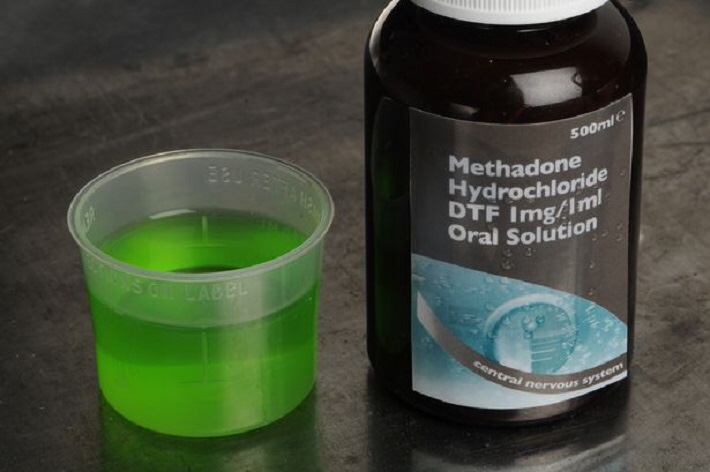Addiction is defined as a psychological and physical inability to stop consuming a chemical, drug, activity or substance, even though it is causing psychological and physical harm to themselves and others.

In the United Kingdom, 6–10% of people over the age of 12 are addicted to alcohol, drugs or a behaviour. That’s millions of people struggling day in, day out with an addiction of some description.Figures vary depending on who has published the figures as some addicts do not or will not admit they have a problem with addiction, however 6-10% is the UK governments figure. (Cigarette smoking is also an addiction and is included as an addiction within this article but not in the estimated number).
Addiction Is A Chronic Medical Condition That Is Treatable & Manageable
When an illness or disease is chronic, that means it’s lasting longer than 3 months. It can’t be cured, but it can be managed with treatment and maintained by abstinence. Other examples of chronic illnesses include asthma, diabetes and heart disease.
It is critical that treatment simultaneously addresses any co-occurring neurological and psychological conditions that are known to drive individuals to abuse drugs and become addicted in the first place. Addiction is often a result of a mix between their physical and mental health, any psychological traumas they have experienced either as adults or during their childhood, continued extreme stress or aggravation, the persons genes and biological makeup, ongoing financial or housing problems and others.
This combination of issues then pushes the individual to seek a way to block these continued stresses out temporarily or to try and numb the way they feel. in reality, substance abuse and eventual addiction only causes these issues to become worse and it is a never ending downward spiral into more and more problems.
Addiction Is A Medical Illness
Respected institutions including the NHS, addiction charities and research facilities define addiction as a disease. Studies published in the British Medical Journal (BMJ) And many others support the position that addiction is a brain disease (both physical and psychological).
A disease is a condition that changes the way an organ functions. Addiction does this to the brain, changing the brain on a physiological level. It literally alters the way the brain works, rewiring its fundamental structure. That’s why scientists say addiction is a disease.
Although there is no cure for addiction, there are many evidence-based treatments that are effective at relieving the active use or consumption of drugs or alcohol and allow the individual to maintain abstinence from substances with the help of either residential rehabilitation facilities or community based drug and alcohol services. Like all chronic illnesses, addiction requires ongoing, lifelong management that may include medication, psychological therapies and lifestyle changes. Once in recovery from substance use disorder, a person can go on to live a healthy, successful and prosperous life. Addiction is treatable and recovery should be the expected outcome of treatment.
How Does Addiction Change The Brain?
The human brain is wired to reward us when we do something pleasurable or rewarding. Exercising, eating, sex, socialising and other pleasurable behaviors directly linked to our health and survival trigger the release of a neurotransmitter called dopamine. This not only makes us feel good, but it encourages us to keep doing whatever we were doing that made us feel good. It teaches our brains to repeat the behaviour and so hoping that the same outcome will happen again next time we do it.
Drugs, alcohol or Addictive behaviours trigger that same part of the brain—the reward system. But they do it to an extreme extent, rewiring the brain in harmful ways.
When someone takes a drink or drug, their brain releases extreme amounts of dopamine—way more than gets released as a result of a natural pleasurable behavior. The brain overreacts, reducing dopamine production in an attempt to normalise these sudden, sky-high levels the drugs have created. And this is how the cycle of addiction begins. The video below will give you a simpler way to understand the medical terms and processes that occur in addiction.
Once Someone Is Addicted, They’re Not Using Drugs To Feel Good — They’re Using Drugs Or Alcohol To Feel Normal
Studies have shown that consistent drug or alcohol use severely limits a person’s capacity to feel pleasure at all. Over time, drug or alcohol use leads to much smaller releases of dopamine. That means the brain’s reward center is less receptive to pleasure and enjoyment. These include drugs or alcohol as well as from every day sources such as relationships or activities that a person once enjoyed before using substances. Once the brain has been altered by drug or alcohol use, it requires more and more drugs or alcohol just to function at a baseline level. This is known as drug or alcohol tolerance.
Withdrawal Can Be A Painful, Whole-Body Experience
Withdrawal happens when a person who’s addicted to a substance stops taking it: either in an attempt to quit (go cold turkey) or because they don’t have access to the drug for an extended period of time. Someone in withdrawal will feel absolutely terrible. Some of the general symptoms may make the person feel depressed, despondent, physically ill and psychologically stressed/distressed. Some more basic information about withdrawing and the detox process can be found in the video below.
The Brain Of An Addict Causes Behavioural Changes
Brain imaging studies (CT & MRI) from drug/alcohol-addicted individuals show physical, measurable changes in areas of the brain that are critical to judgment, reasoning, decision making, learning, memory and behavior control. Scientists and Doctors believe that these changes alter the way the brain works and may help explain the compulsive and destructive behaviors that come along with addiction.
A promising student might see his grades slip. A bubbly social butterfly might suddenly have trouble getting out of bed. A trustworthy sibling might start stealing or lying. Behavioral changes are directly linked to the drug/alcohol user’s changing brain. As addiction develops and progresses, lying, manipulation, theft, blackmail, emotional abuse and others are all commonly noted changes in behaviour that are attributed to addiction.

Cravings are another attribute of addiction and often takes over the thoughts of addicts as addiction progresses and worsens. These cravings can be intense, constant, and distracting. The person can’t stop thinking about finding ways and means to source, buy and use drugs or alcohol, no matter what the consequences may be, often resulting in compulsive and destructive behaviours to achieve and satisfy the cravings. Especially given the intensity of withdrawal symptoms, the body wants to avoid being in withdrawal at all costs and wants to continue feeling good or “normal” from the effects that the drugs or alcohol gives the user.
We need to tell our children that one drink, one pill, one smoke or one injection can lead to an addiction. Some of us have the genes that increase our risk of addiction, even after just a few uses. I never knew that when I was raising my son and I wish that I did as things may have been different.
M. Carr – Mother Of An Addict From Southampton
What Fosters Addiction? Scientists Say There Are 3 Main Factors
The first time a person tries alcohol or drugs, it’s a voluntary choice. But at some point during its use/abuse, a switch gets flipped within the brain and the decision to use is no longer voluntary. The founder of Drink ‘n’ Drugs says, “it’s as if an addicted person’s brain has been hijacked and is being controlled by something inside that just wants the individual to continue using or drinking as much and as often as possible, whilst ignoring all of the consequences and negative impacts it’s having on their life”.
Anyone who tries a substance can become addicted to it and research shows that the majority of UK residents are at risk of developing an addiction. Over 40% of 13–14 year olds and over 75% of 17–18 year olds, report that they’ve tried alcohol. What’s more, 42% of 17–18 year olds report that they’ve tried illicit drugs. These figures are startling to say the least! And unfortunately, science and research tells us that some of these young adults will become full-blown addicts when they enter adulthood.
After initial exposure, no one chooses how their brain will react to drugs or alcohol. So why do some people develop an addiction, while others don’t? The latest science points to three main factors that can determine who will or won’t develop an addiction.
Genetics
Scientific research has shown that approximately 50–75% of those with specific genes, making individuals more susceptible to developing an addiction comes from genetics, or a family history of the illness. Exactly how genetics factor into addiction and what we could do to protect against their influence, is something scientists are actively researching right now. Even trying to develop anti-addiction vaccines which would allow individuals in the future to inoculate themselves against addiction before they even think about using or drinking for the first time.
Environment

Research shows that growing up in an environment with adults who use drugs, alcohol or engage in criminal behavior is a risk factor for addiction. Protective factors like a stable, clean, drug free home environment and supportive school are all proven to reduce the risk of addiction. Not only that but those who have experienced a “good” childhood develop life skills and coping strategies that individuals who say they had a “poor” childhood do not develop, again adding to the susceptibility for addiction. Cleanliness and having drug paraphernalia also increase the risk of relapse.
Development
Addiction can develop at any age and point in our lives. But research shows that the earlier in life a person tries drugs or alcohol, the more likely that person is to develop an addiction. Our brains aren’t finished developing until we’re in our mid-20s. Introducing drugs to the brain during or before this period of growth and change has finished, can cause serious, long-lasting damage, further increasing the risk of addiction.
All This Scientific Evidence Leads Us To One Conclusion: Addiction Is Not A Moral Failing
Addiction is not a choice. Nobody wakes up one morning and decides that they will become a drug or alcohol addict. It’s also not a moral failing, a character defect or is something that “bad people” do. Most scientists and experts agree that it’s a medical and psychological illness that is caused by biology, our environment, education, level and quality of parenting, family history of addiction, our financial and criminal convictions and many other factors.
Harmful consequences, shame, guilt or embarrassment, ultimatums for treatment or punishment are simply not effective ways to end addiction. A person can’t undo the damage that drugs and alcohol have done to their brain through sheer willpower. Like other chronic illnesses, such as asthma or type 2 diabetes, ongoing management of addiction is required for long-term, lifelong recovery. This can and often does include the use of medication, behavioral & psychological therapies, peer-support groups, fellowship participation as well as lifestyle & environmental modifications.
What Is MAT & How Does It Work?
MAT, or Medication assisted treatment is available to those who want to move away from street drugs or alcohol and want to stabilise on a safer alternative that should allow them to work on the psychological reasons they began using or drinking in the first place whilst also helping to reduce or get rid of withdrawal symptoms all together. MAT is also designed to help the body reduce the cravings that the individual may experience. These combined benefits then allow the person to undergo psychological treatments and counselling ect to help them overcome the issues that pushed them to use or drink in the first place. We know that medication-assisted treatments (MAT), such as the prescription of Methadone, Buprenorphine and Acamprosate among others, are our most powerful interventions. Supporting people to begin MAT at the earliest and safest opportunity saves lives.
How Does MAT Work?
MAT works in 1 of 2 ways, either by the substitution medication binding to the receptors in the brain that would absorb the drugs or alcohol so stopping withdrawals from happening and reducing cravings OR by the substitution medication binding to the drug and alcohol receptors in the brain, stopping withdrawal symptoms and reducing cravings, however the substitution medication also has added compounds that block the “high” You would get from also taking street drugs or alcohol, cancelling it out and also causing you to go into withdrawal if street drugs or alcohol are taken on top of the medication.
Further, this type of replacement drug and alcohol therapy is effective because it:
- Ensures that the patient only takes the correct dose
- Prevents adverse drug reactions and interactions
- Works hand in hand with patient counselling, therapies and education
- Provides patients with the unbiased and up-to-date drug and alcohol information they need to make informed decisions
- Institutes drug and alcohol substitutions and therapy interchange programs where doctors are allowed to substitute addictive drugs with healing ones
- Provides patients with reliable products unlike street drugs
It’s vital that people receiving MAT have the right treatment for their needs. The individual will need to visit the Doctor at their local drug and alcohol service regularly to ensure that the medication they are prescribed is working for them as it should. The dosage may then be increased or decreased to help the individual feel as comfortable as possible. The doctor will also agree a care plan with you if you do not have one already, which will say how you intend to progress and eventually, how you will reduce and come off of the medication as quickly as possible but still ensuring that the you are receiving all the most appropriate treatments available to help you overcome your addiction.

You will also be required to provide drug tests or alcohol breath tests regularly to ensure that you are sticking to the substitution medication and not putting yourself at greater risk by using or drinking on top which may cause you to overdose. When you first start taking your substitution medication, you will most likely be required to go into your nearest pharmacy daily to collect your medication and either take it under supervision of the pharmacist or take that days dose away with you and to use when you want it that day. As you become stable on your medication, the amount of times you need to go in to the pharmacy will reduce. The list below shows you how it normally happens however this varies from person to person so check this with your Keyworker or Doctor.
- Daily collection, supervised consumption
- Daily collection, unsupervised consumption
- 2-3 times weekly collection, unsupervised consumption
- Once weekly collection, unsupervised consumption
I Feel That I Or Someone Else Is An Addict And I Don’t Know What To Do?
Admitting that you have a problem with alcohol, drugs or other addictive behaviours is the first step on your road to recovery. After all, you can’t seek help or treatment for something you don’t believe you have!
Once you or someone else admits that you/they have an addiction, the next stage is to determine how bad your/their addiction is? As a rule of thumb, the following advice is recommended:
- Over the counter medication, prescription medication or natural/herbal medication – We recommend that you initially contact your GP as they can help you to slowly reduce your medication to minimise any withdrawal symptoms that you may experience. They may also be able to swap you to a different medication that isn’t as addictive as well as help you manage any side effects or symptoms you may experience when reducing your medication. You always have the option to self-refer to your nearest drug and alcohol service if you feel that you need more support.
- Illicit drugs or alcohol – If you are addicted to illicit drugs or alcohol then we suggest that you contact your nearest drug and alcohol service. Certain drugs as well as alcohol can cause serious, life-threatening complications and in severe cases, may even be fatal. They can provide you with treatment options such as group/one to one therapy, substitution medications and acupuncture along with options to go through a professional detox and/or residential rehabilitation package. Normally both are recommended as detoxing alone without dealing with the underlying issues that led you to become an addict in the first place will likely not be enough to maintain your abstinence and after a short period of time, likely fail and cause you to relapse.
Contact information for your nearest drug and alcohol service and GP practice (if you are not already registered with one) on our help and support page. You will also find contact information for other organisations or charities that can help you during your recovery journey.
We do this to help YOU! If you are struggling with your addiction and want further help and support, you can email us at: info@drink-n-drugs.com. We will always respond to your email within 3 hours of receiving it as we know what it feels like when you have an addiction and desperately want help and every minute feels like an hour! Don’t worry, we are here to help you!…


38 thoughts on “The Science Behind Addiction And MAT Programs”